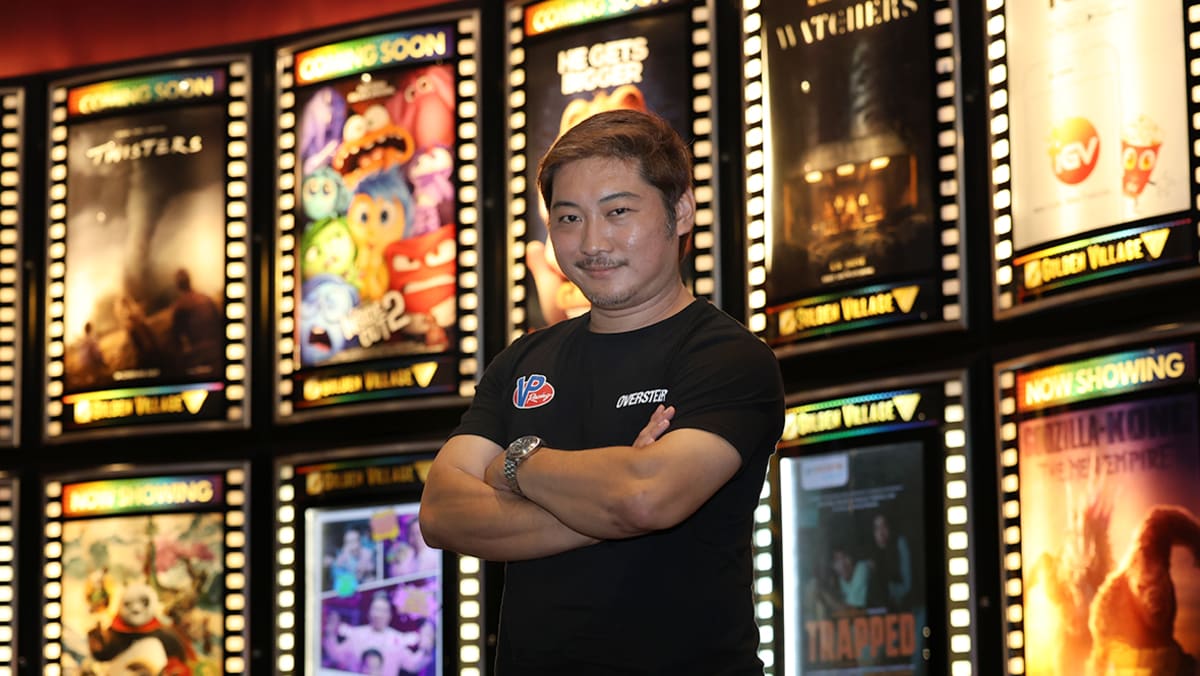SINGAPORE — If you were to scroll through the Golden Village website, chances are you would find a seemingly obscure title called Oversteer among a long list of global blockbusters.
And if one were to head down to the cinema screening it — currently only at VivoCity — promotional posters for it are conspicuously absent.
“We don’t have any marketing budget, so you can’t even see our poster outside,” the film’s director Derrick Lui, 48, told TODAY candidly in a sit-down interview recently.
“We’ve got no money, so basically we rely on people who have watched the film sharing about it by word of mouth.”
Without giving away too much, here is the 86-minute feature film in a nutshell: It tells the tale of a young man whose ambitions and interest in the automotive industry led to a falling out with his family.
Though it is touted as Singapore’s first car racing-themed movie, Lui winces at attempts to compare it with more familiar titles of the same genre, like Hollywood’s Fast and Furious franchise.
Not least because his movie was produced on a starkly shoestring “six-figure” budget instead of a multi-million dollar one, but also because family is the central theme to his movie, he said.
For over an hour, Lui sat with TODAY at the Golden Village Gold Class lounge to talk about how he got into the filmmaking industry, and why Oversteer took 10 years to see the light of day.
He also spoke about why he thinks it is challenging to produce a commercially successful film here in Singapore.
FOOTBALLER TO FILMMAKER
Lui’s career in filmmaking was largely by chance; his first career choice was football.
“I’ve decided since secondary school I wanted to be a footballer. And I worked very hard (for it) at the expense of everything else — studies, relationship,” he said.
His aspirations were, however, short-lived when he broke his ankle during a match.
Wanting to make full use of his time while serving National Service after the injury, the business diploma graduate decided then to further his studies.
Being a self-professed “mischievous” youth who “hates memorising”, he looked out for the course with as much practical component to the syllabus as possible, which led him to a filmmaking degree.
Even then, he experienced some speed bumps along the way. He could still remember how he was the only one in class to fail their first assignment in video editing.
“It got me thinking: ‘Is this all a big mistake?’” he recalled.
Fortunately, he had a wonderful lecturer “whom I attribute to changing a bit of my life”. She took him aside, told him that she saw talent in him and patiently went through with him the mistakes that he made.
Lui said that after the chat, he excelled for the rest of his assignments.
For about 20 years or so since then, Lui delved into a full-time career in production — with stints in Mediacorp’s television commercial division Caldecott Productions International and MTV Asia, among others.
He recalled at times travelling for months to film programmes, such as a food travelogue with Malaysian celebrity Chef Wan.
But the father of three eventually shifted gears, opting to do short-form productions so he could better control his schedule and spend more time with his children.
“I felt that if you lose them when they’re young, you will not recover what you’ve lost when you’re older. So you’ll lose them forever.”
